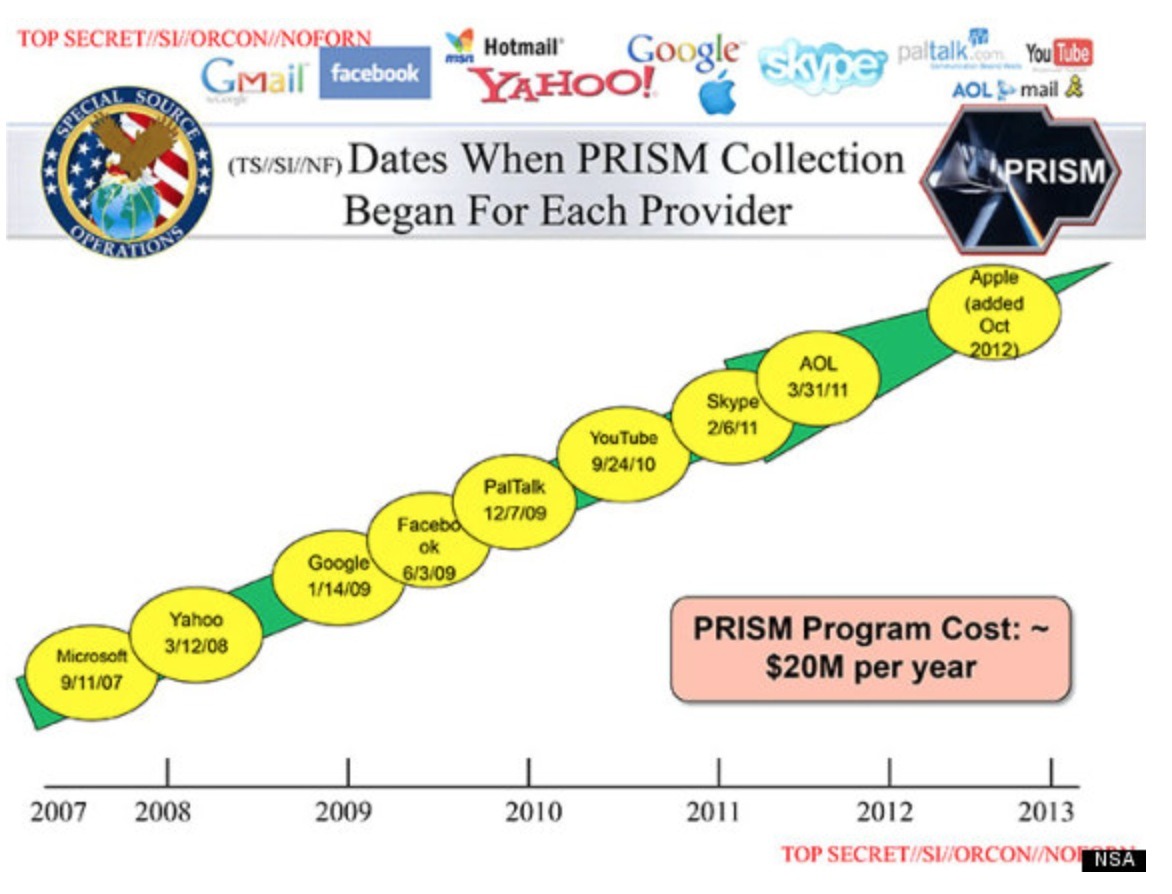So Bill Gates recently gave an interview to Rolling Stone magazine. The vast majority of the interview focused on his philanthropic efforts, with a particular focus on poverty and climate change. However, several questions were brought up on illegal NSA surveillance in general, and Edward Snowden in particular.
His answers reveal one of the biggest problems facing America today, which is the fact that the billionaire class as a whole does not question or rock the boat whatsoever. They criticize only when it is convenient or easy to do so, never putting themselves at risk for the sake of civil liberties and the Constitution.
In mosts cases, this is due to the fact that they themselves are the characters pulling the strings of the political class in Washington D.C. So when it comes down to it, their policies ultimately become our policies.
It is also important to note that Microsoft was a particularly eager participant in NSA spying from the very beginning. For example, according to the following PRISM slide provided by Edward Snowden, we see that Gates’ company was the first to become involved. In fact, they were participating a full six months before Yahoo!, while Apple didn’t join until a year after Steve Jobs died.

What a tangled web we have weaved. Now from Rolling Stone:
Question: When people think about the cloud, it’s not only the accessibility of information and their documents that comes to mind, but also their privacy – or lack of it.
Gates: Should there be cameras everywhere in outdoor streets? My personal view is having cameras in inner cities is a very good thing. In the case of London, petty crime has gone down. They catch terrorists because of it. And if something really bad happens, most of the time you can figure out who did it. There’s a general view there that it’s not used to invade privacy in some way. Yet in an American city, in order to take advantage of that in the same way, you have to trust what this information is going to be used for.
Do they really catch terrorists because of it in London? Because in the U.S., the NSA chief already admitted that the entire spy program has stopped essentially zero terrorist attacks. It certainly didn’t stop the Boston bombings. So what are we giving up our privacy for exactly?
Question: Thanks to Edward Snowden, who has leaked tens of thousands of NSA documents, we are. Do you consider him a hero or a traitor?
Gates: I think he broke the law, so I certainly wouldn’t characterize him as a hero. If he wanted to raise the issues and stay in the country and engage in civil disobedience or something of that kind, or if he had been careful in terms of what he had released, then it would fit more of the model of “OK, I’m really trying to improve things.” You won’t find much admiration from me.
Sorry Billy boy, but we have had many whistleblowers in the past who went through the system and they ended up in jail or their lives were ruined. For example, the only person imprisoned for torture in the USA is the guy who exposed the torture program, John Kiriakou.
Donate bitcoins: 35DBUbbAQHTqbDaAc5mAaN6BqwA2AxuE7G
Follow me on Twitter.


